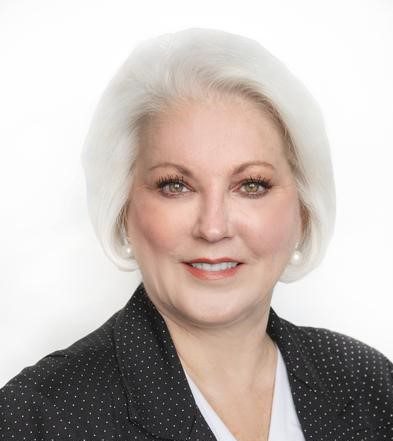Originally Published in Today’s Veterinary Business October 2019
Millennials are often in the news—and they have been for quite some time now–with countless articles discussing their impact in the workforce. But what about Generation Z? This is the group of people born between about 1995 and 2010. They’re also in or entering the workforce, and their perception of the world and their participation in the workplace is definitely different from that of the Millennials who came before them.
Gen Z, as they’re called, is about 57 million strong in the United States. Other names include Post-Millennials, Founders, Plurals, the iGeneration, and the Homeland Generation. This article will describe, overall, what they value and how they perceive life, with the understanding that not everyone in this generation (or any other generation, for that matter) ever thinks exactly alike.
Core Values & Behaviors
An in-depth survey of this generation conducted by McKinsey & Company determined that Gen Z has several core behaviors in common, each of which center on their search for truth. They avoid labeling; opting to focus more on individuality, honesty and competence of people. Thus, making them more willing to understand different types of people; enabling them to differences of opinion and interact with organizations that don’t match their personal values. They want to spend their energy on causes that matter, such as homelessness, poverty, world hunger, identity, human rights, and gender equality. They want brands to behave in ethical ways, being transparent, and having actions match what company officials say.
As such, it makes sense that diversity is considered the norm by this generation, to the degree that Gen Z often don’t readily think about the demographics of a group, whether that means racially, or religious preferences or sexual orientation. To put this into perspective, Business Insider and Axios predicts that by 2045, the United States will be majority minority; meaning, this may be the last generation where the majority of people in the United States identify as white and, for much of Gen Zs’ lives, the president identified as a black man.
Additionally, Gen Z expresses a desire to be financial stable; this, combined with their aforementioned appreciation for diversity and the changing demographics in the United States, likely attributes to their overall mix of beliefs and can include fiscally conservative points of view combined with socially liberal ones.
Overall, Gen Z can be considered pragmatic, practical, and analytical; believing that most conflicts, including global issues, can be solved through effective uses of communication. Through simple conversations, they are able to learn, strategically gather information, and make highly informed decisions about what their next step(s) should be.
Workplace Values
About 36 percent of Gen Z will be in the workforce by the year 2020. According to statistics quoted by HR Magazine in November/December 2018, 58 percent of them hope to own a business someday (and 14 percent of them already do).
When looking for employment, here’s what matters to Gen Z:
- Good salary: 35%
- Enjoyable work environment: 26%
- Flexible schedule: 14%
- Opportunity to create new products: 11%
- Chance to learn new skills: 8%
- Community focus: 7%
Most have been exposed to the internet and social media their entire lives, making Gen Z very comfortable with the virtual world and with seamlessly crossing from online to “offline” experiences. This ease will certainly have an impact on how technology will continue to evolve in the workplace.
More specifically, Gen Z have always lived in a world where information comes at them, fast and furious: they’ve learned to rapidly process information but may not have long attention spans. They multi-task, shifting from one activity to another, often in a way that people from previous generations may find distracting.
Transforming the Workplace
Millennials have done an excellent job of shedding light on the high costs of higher education plus the student loan debt incurred from the pursuit thereof. From this observation, many from Gen Z may choose to not pursue traditional educational pathways. People of Gen Z may, instead, opt to go straight into the workforce, attend classes online, pursue entrepreneurship, or choose paths that vastly differ from the paths ventured by previous generations.
Assuredly, Gen Z will have a significant impact on the development of workforce, as companies need to manage complex, multi-generational teams consisting of younger Baby Boomers, Gen Xs, Millennials, and Gen Zs. Each generation has different values, workplace expectations, life goals, and more. For example, people of Gen Z have a strong desire for work-life balance and appreciate developing personal, and maintaining, technological connections. In fact, AdWeek recently reported that Gen Z are 1.3 times more likely to buy products if their favorite celebrity advertises it on social media. This is important for companies, as company branding and marketing primarily occur on social media and, as such, if your company has no social media footprint, then your chances of reaching Gen Z diminishes; this represents a significant shift from strategies enacted by past generations’.
In light of this, companies must find strategic ways to take advantage of the human resources they currently have. For instance, employ a strategy that combines mentoring and reverse mentoring; where those who are from Gen Z can educate those from other, older generations and vice versa. Thereby preventing, and potentially wholly avoiding, generational gaps and conflicts that damage productivity, efficiency, and workers’ value.
Alternatively, you can cater to Gen Z’s interest in forming a personal connection. When they work for a company, Gen Z has been shown to prefer regular, in-person feedback from their supervisors; this feedback can be short and sweet, as long as it’s prompt and regular. They also want to interact directly with managers often, even multiple times daily. This shouldn’t be surprising, given that they are used to texting, conversing on social media, and so forth, which can be considered real-time conversations.
When Recruiting
When your practice is recruiting new employees, it can help to think of it as a brand, and then demonstrate your brand visually to attract Gen Z job candidates. Think about what makes your practice unique, what makes it interesting. How can the candidate you’re interviewing contribute to your practice? Make that clear.
People of Gen Z typically read online reviews about companies before they interview with them, and they are attracted to reviews that show how the workplace can be a fun place to be, even when working hard at the job. Flexible schedules and paid time off are attractive to many Gen Zs.
Young adults from this generation often make great employees; especially because Gen Z has the ability to adapt to change in the way that would make most people from older generations uncomfortable. You can consider them to be “radically inclusive”; wherein they value individual expression and don’t readily distinguish their online and offline experiences in the way that other generations do. They don’t differentiate between their friends in the physical world and those they’ve only known online. This is likely true, at least in part, because of the rapidly changing technology that’s always been part of their lives which likely contributes to their ability to quickly learn, their comfort levels with technology, and how much they can contribute to a company’s bottom line.
Although they bring strengths to the workplace, they may need guidance and training on soft skills that previous generations possessed so readily possessed. These are skills like how to handle clients calling your practice and how to respond to them via email, to name a couple. You’ll have to think of other ways to truly address these areas that caters to their inherent abilities like instructional videos, role-plays with co-workers, or even one-on-one training could be appreciated by this tech-savvy generation.









